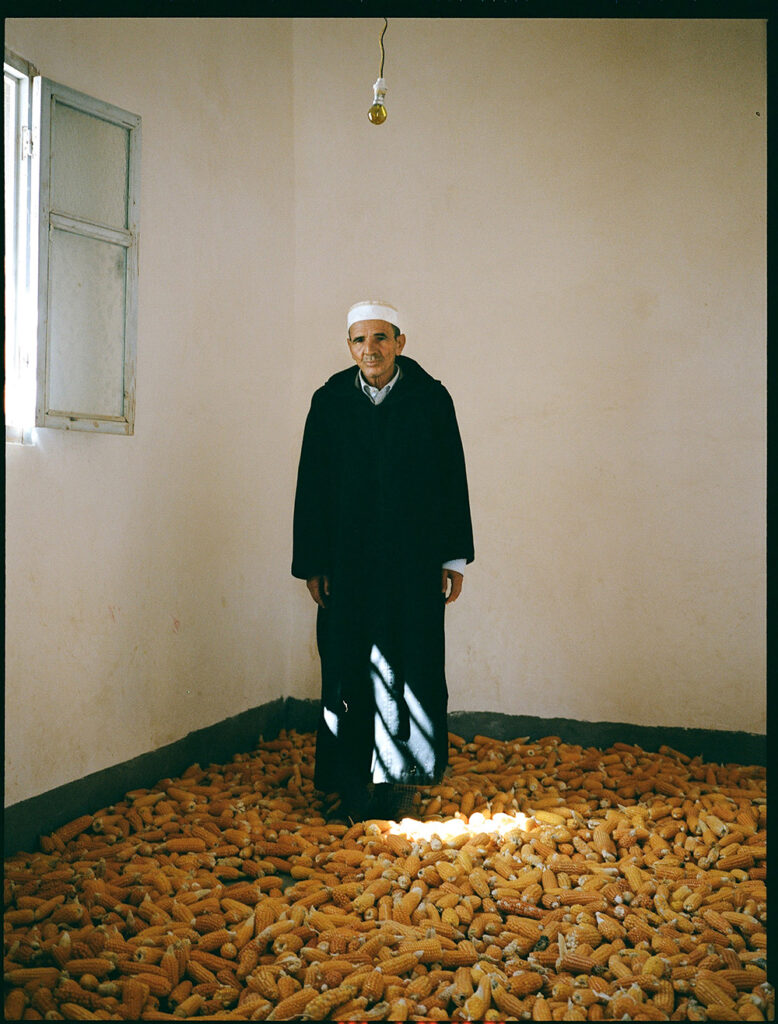“I AM MOROCCO” ESSAY
PUBLISHED ON LINSDAY MAGAZINE Nº1 · PHOTOGRAPHY OLGA DE LA IGLESIA · AUSTRALIA, 2017
I AM LAND, I AM MOROCCO
English only
I sit here, on the westernmost corner on the Maghreb.
My body lies mountainous and fierce, sandy and captivating, in the immensity of the African continent, where humanity begun. My nose stares at Gibraltar where it captures and exchanges flavours with Europe. Far below, my longly fought-after tail is a desert where people speak Spanish.
I am Morocco—a land caressed by the mother, the Mediterranean Sea, and the father, the Atlantic Ocean. I am a person; a living country. I share the sky with myself. I have memories of my past, but it’s like when you wake up from a dream and can’t hold anything but the sensation. People have cut through my lands since the beginning of time. I’m arid today. Once I was flourishing and my harsh landscape was painted with brushstrokes of grassland. That was a long time ago.
As the Romans dominated the known world and Greek culture expanded its realm in the fertile Mediterranean, I was on the other side of the fence, under the influence of Carthage, the shining city. As the Phoenician empire founded by the passionate Dido dissolved, I turned Berber, then Roman, finally Islamic.
I am a country of fragmented images, held together like the fibres of one of my textiles. I am a country of many tongues: the ancestral Berber language and the newly released Tifinagh alphabet. I am a country of coffee beans made of light and shadow; of harsh suns and fervent dark skies. I am a country of blue magical cities and villages lost in the Atlas; astonishing terraces and luxuriant gardens; geometric architecture; and endless, unpaved roads.
I inherited my name from one of my sons—the old city of Marrakech. The orange metropolis, in the southern part of the country, is a pulsing core of chaos and beauty. My people sometimes take relief from the bursting crowds of my souks in patios from another time. The ancient ville, enclosed and protected by fortified walls, dances between darkness and the warmth of the night’s street lights. The alleyways, which simultaneously bind together and divide the timeless houses made of mud, have no name. There is no further aid for orientating, than memory and instinct.
Trade is what moves my cities. It sculpts Marrakech out of mud. It provides richness and sustains the economy: covering me in textiles of every imaginable colour, flooding my streets with smells and flavours, making my people talk in many languages. Merchants and hosts seduce those with hesitant eyes who leave the openness of the marketplace at Jemaa el-Fnaa square—a catwalk of fighters—and enter the labyrinthine souk.
Colours are everywhere: tying together and tearing apart the people in my swarming markets; thriving in the otherworldly plants of the Majorelle garden; shouting in the woven fabric draped in tiny stores. My walls. All sorts of fruit and vegetables—gifts from my bountiful yet dry soil—hang on the backcloth of eroded bricks and cracked paint.
Doors bridge two worlds, and hide them from each other at the same time. They divide the lives of my people. Daylight seeps in, from windows and holes, revealing empty rooms where wonders can be found. The sand from the desert infests the doorsteps while families gather around small tables dipping bread in baths of olive oil—oil that comes from trees that decorate my enigmatic and harsh mountainscape. Opening and closing doors create a harmony of infinite chords.
I am a woman. My womb gives birth to lives, seconds before leaving them to walk and struggle and love. I give birth to men—fathers and sons—their intense sights, their childhood, their fierce faces, their hands. I give birth to women—mothers and daughters—their unnavigable hair, their baskets of fruits and history of ancestral inequity, their teenage dreams, their immense beauty and dignity.
I sit here. My history is relentlessly being written on this canvas of grainy landscapes, collective memories, personal struggles, and fallen empires. An idea enclosed within boundaries.
* *
*
